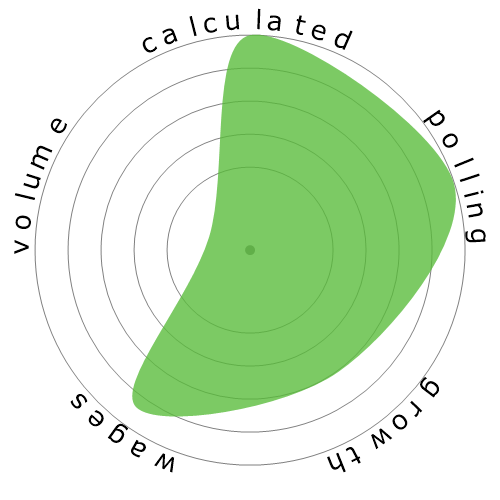Physicists
Where Would You Like to Go Next?
Or, Explore This Profession in Greater Detail...


What does this snowflake show?
What's this?
We rate jobs using four factors. These are:
- Chance of being automated
- Job growth
- Wages
- Volume of available positions
These are some key things to think about when job hunting.
People also viewed
Calculated automation risk
Minimal Risk (0-20%): Occupations in this category have a low probability of being automated, as they typically demand complex problem-solving, creativity, strong interpersonal skills, and a high degree of manual dexterity. These jobs often involve intricate hand movements and precise coordination, making it difficult for machines to replicate the required tasks.
More information on what this score is, and how it is calculated is available here.
User poll
Our visitors have voted there's a low chance this occupation will be automated. This assessment is further supported by the calculated automation risk level, which estimates 0.6% chance of automation.
What do you think the risk of automation is?
What is the likelihood that Physicists will be replaced by robots or artificial intelligence within the next 20 years?
Sentiment
The following graph is shown where there are enough votes to produce meaningful data. It displays user poll results over time, providing a clear indication of sentiment trends.
Sentiment over time (yearly)
Growth
The number of 'Physicists' job openings is expected to rise 7.2% by 2033
Total employment, and estimated job openings
Updated projections are due 09-2025.
Wages
In 2023, the median annual wage for 'Physicists' was $155,680, or $75 per hour
'Physicists' were paid 223.9% higher than the national median wage, which stood at $48,060
Wages over time
Volume
As of 2023 there were 18,350 people employed as 'Physicists' within the United States.
This represents around < 0.001% of the employed workforce across the country
Put another way, around 1 in 8 thousand people are employed as 'Physicists'.
Job description
Conduct research into physical phenomena, develop theories on the basis of observation and experiments, and devise methods to apply physical laws and theories.
SOC Code: 19-2012.00
Comments (45)
If any junior reads this message, I can only wish you the best. While your work is irreplaceable by AI, your future will be filled with problems where AI cannot assist you. Good luck.
If anything, I can see some simulation aspects or redundant experimental procedures being automated in the near term. But parts that incorporate creative problem solving or the physical intuition needed in determining directions to take research are things that are pretty safeguarded to humans for a bit.
I think those "intuitions" are very difficult to map to general problem-solving algorithms.
We can have a discussion on whether it is possible in the next 200 years, sure, but 20 years? That's laughable. Given that only physicists are qualified to write, train, and optimize the algorithms that would be used to replace them, it will take a long, long, long time.
I suspect that we would need true machine sentience before we could actually start to talk about replacing theoretical and mathematical physicists.
Reply to comment